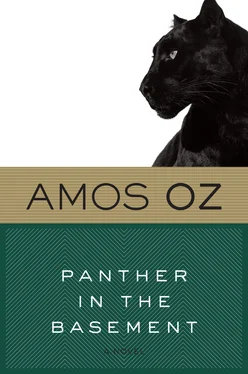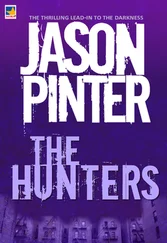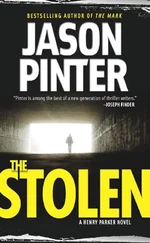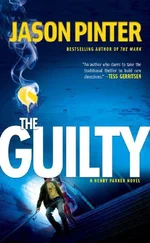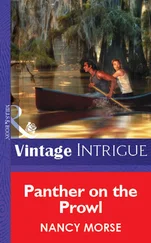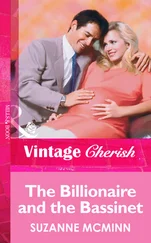I tut-tutted politely and imprinted it all in my memory. And my heart slunk barefoot, on tiptoe, a beggar among dukes and earls, my eyes gaping in amazement, through high-ceilinged, mahogany-paneled rooms lit by chandeliers, watching Captain Bolder entering proudly and the beautiful Mrs. Sherwood immediately turning on her heel and flouncing out.
Apart from the language of the Prophets, Sergeant Dunlop also knew Latin and some Greek, and in his spare time he was teaching himself literary Arabic ("that the three sons of Noah — Shem, Ham, and Japheth — may dwell together in my heart, as it was before the division of tongues"). He pronounced the name Ham like the English word ham, instead of with the Hebrew guttural H sound, and noticing me stifling my amusement, he said, "I speak as I may speak." I could not stop myself confiding in him that my father also knew Latin and Greek, and other languages besides. Then I felt sorry and ashamed of myself, because we must under no circumstances communicate even innocent information like that to them: it is impossible to know what use they might make of it. After all, the British, too, can collate one freely available fact with another, and come up with a secret that they can exploit to our disadvantage.
Now I must explain how Sergeant Dunlop and I became acquainted. We met as enemies. Pursuer and pursued. Policeman and Underground fighter.
Late afternoon at the beginning of the summer holidays I set out by myself to investigate possible hiding places in the caves behind Sanhedriya. In one of the caves my search revealed a small chamber almost entirely blocked up with a heap of stones and dust. A superficial exploration brought to light four cartridge cases from rifle bullets, and I made up my mind that it was my duty to continue searching. When it grew dark and a coldness like the touch of a corpse wafted toward me out of the depth of the cave, I went out. Night had fallen. The curfew had emptied the streets. My heart thumped, panic-stricken, in my chest as though it were trying to punch out a little space behind itself that it could hide in.
I decided to creep home through the backyards. Starting in early spring, the FOD had devised a network of crossings from one yard to the next. Following a directive I had received from Ben Hur and transmitted, after working on it and improving it, as an order to Chita Reznik, Chita had laid out pathways of planks, stones, crates, and ropes linking strategic points. So we could get over fences and walls and sally forth or retreat through the maze of backyards and gardens.
Suddenly a single shot rang out not far away. A real shot: sharp, savage, and terrifying.
My shirt stuck to my skin with fear. The blood throbbed in my temples and my neck like a tom-tom. Panting and terrified I started running monkeylike, bent double, over fences and through bushes, grazing my knees, hitting my shoulder against a stone wall, catching the cuff of my shorts on a wire fence but not stopping to loosen it: like a lizard shedding its tail, I dragged myself free, leaving a tatter of cloth and a shred of torn skin in the fence's grip.
I had just left the shelter of the back steps of the post office, whose dark windows were protected by grilles, and was on the point of slipping diagonally across Zephaniah Street, when a dazzling beam of light suddenly hit me in the eyes and in the same instant something cold and soft and moist, like the touch of a frog, made contact with my back and groped its way up my spine and into my hair. I froze, like a hare in the split second before the predator's claws strike. The hand that was clutching my hair was not strong, but big and soft, like a jellyfish. So was the voice behind the blinding light: not the usual British bark, but a single porridgelike syllable: "Halt!" Then at once, in classroom Hebrew but with a rounded English accent: "Whither dost thou hasten?"
It was a clumsy, rather feeble British policeman. A metal badge bearing his identification number shone on each shoulder. His cap was askew. We were both panting hoarsely. Our faces were dripping sweat. He was wearing khaki shorts that reached down to his knees and khaki socks that reached up to his knees. Between the two his knees gleamed faintly in the dark; they looked plump and soft.
"Please, sir," I said in the language of the enemy. "Please, kindly sir, let me go home."
He answered, again in Hebrew. Not in our kind of Hebrew, though. He said:
"Let not the lad go astray in the darkness."
Then he said he would take me to my front door, and that I must show him the way.
I should not really have done it, because our policy was to disobey all their orders and so to impede the motion of their repressive machinery. But what alternative did I have? His hand was on my shoulder. Up to that evening, I had never laid hands on an Englishman and no Englishman had laid hands on me. I had often read in the papers about the hand of the British. For instance: "Hands off our survivors." Or: "May the arrogant hand raised against the last of our hope be lopped off!" Or: "Cursed be the hand that shakes hands with our oppressors."
And here was the hand of the enemy on my shoulder, and it was like cotton wool. I felt ashamed, as though I was being touched by a girl. (At that time I held to the view that when a girl touches a boy it humiliates the boy. A boy touching a girl, on the other hand, was an act of heroism that could only happen in a dream, or in a film. And if it did happen in a dream, it was best not to remember.) I wanted to tell the British policeman to take his hand off the scruff of my neck, but I didn't know how to. And I wasn't entirely sure I wanted to, because the street was empty and sinister, and the buildings were dark and shuttered, like sunken wrecks. The dark air seemed thick and menacing. The plump British policeman was lighting the way with his flashlight, and I had a feeling that the beam of light on the sidewalk ahead of us offered some protection against the evil that lurked in the empty city. He said:
"Lo, I am Mr. Stephen Dunlop. I am an Englishman, who would give all the substance of his house for the language of the Prophets and whose heart is in thrall to the Chosen People."
"Tank you kindly, sir," I said, as we had been taught at school, and I felt ashamed of myself. I was glad that nobody would ever find out. I was also ashamed of myself because I had forgotten that you were supposed to pronounce the first consonant of "thank you" with your tongue between your teeth, to make that special English sound that was halfway between t and s. To my shame, I had said "tank" instead of "thank."
"My home is in the city of Canterbury, my heart is in the city of Jerusalem, and speedily shall my days in Jerusalem be ended and I shall arise and return to my land just as I came hither."
Against the urgings of my conscience, against my principles, against my better judgment, I was suddenly quite taken by him. (Is such a British policeman, who sides with us even though it is against the orders of his king, to be considered a traitor?) In the three poems I had written about the heroes of the time of King David and shown to Yardena alone, I, too, had chosen to use exalted language. Actually he was very lucky, that sergeant, that it was me he caught that night in the street and not Ben Hur or Chita: they would have made fun of his highfalutin Hebrew. Nevertheless, a sober voice inside me whispered: Better watch out for them. Don't be too gullible. As we learned from Mr. Zerubbabel Gihon: "They are haughty and they speak hard things, for there are seven abominations in their heart," "full of guile and deceit" (and what is "guile" actually?), "their hands are full of blood." And, of course, there was Father's invariable expression, the one from the slogans he composed in English for the Underground: Perfidious Albion.
Читать дальше
